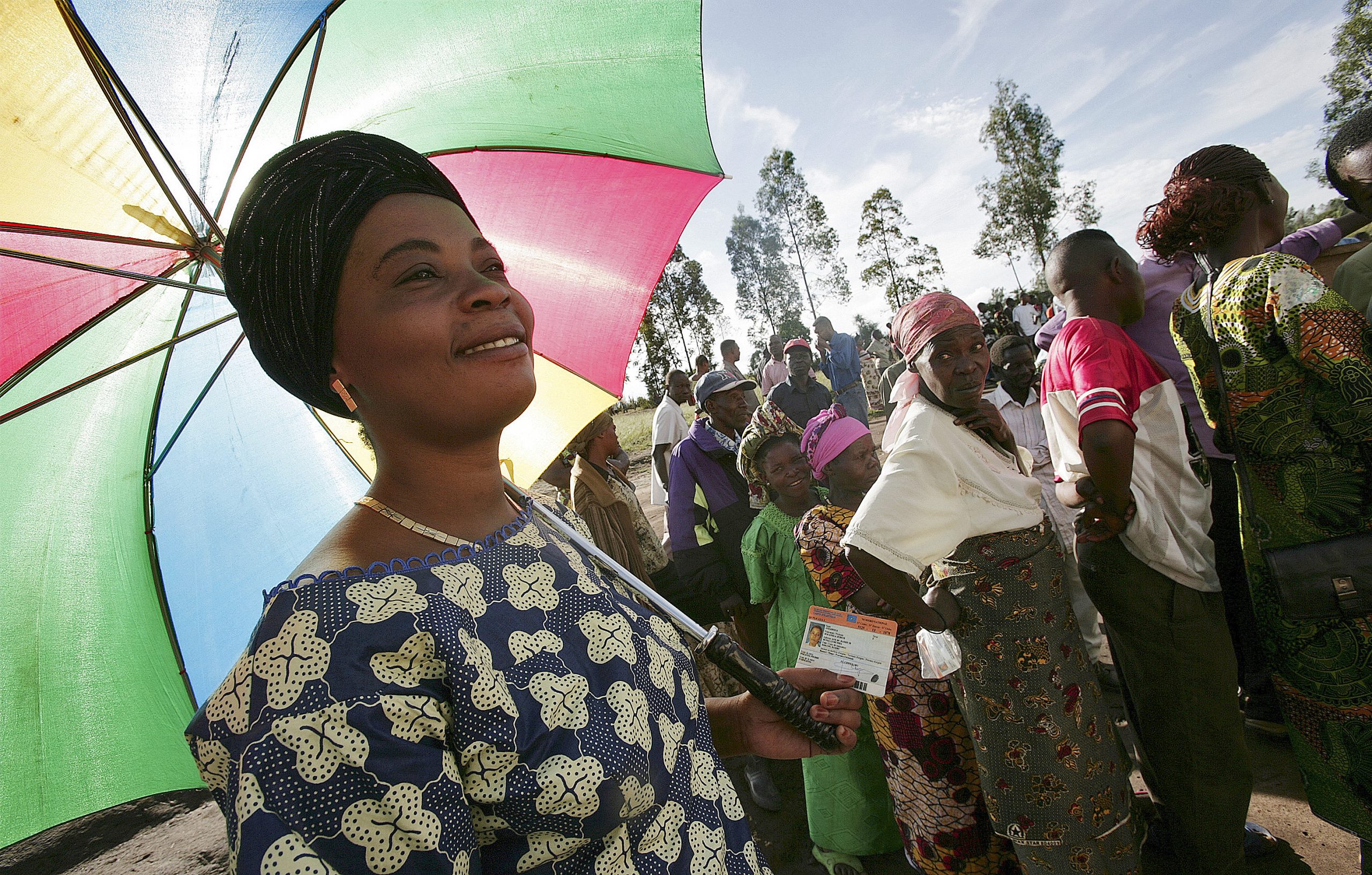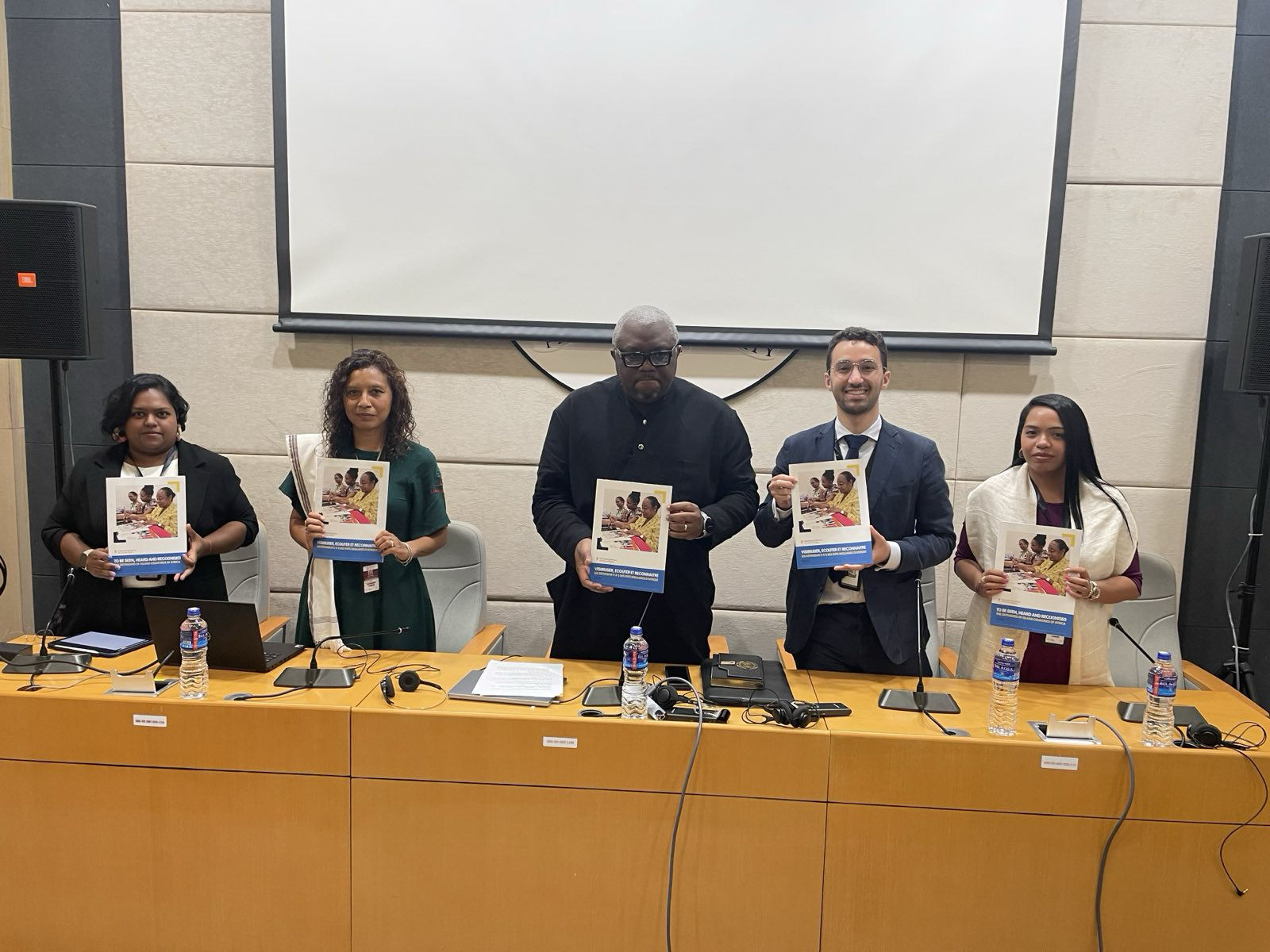
Egypt: Reform unjust vice laws, guarantee open civic space
During Egypt's UPR adoption at HRC59, Nora Noralla delivered a joint statement on behalf of ISHR, Cairo 52 and Middle East Democracy Center. Watch and read the full statement below.

The UN Human Rights Council has adopted a resolution on the ‘Protection of the Family’ which ignores the reality that various forms of family exist, and does not comply with international human rights standards, the International Service for Human Rights said today.
(Geneva) – The UN Human Rights Council has adopted[1] a resolution on the ‘Protection of the Family’ which ignores the reality that various forms of family exist, and does not comply with international human rights standards, the International Service for Human Rights said today.
Instead, the resolution seeks to impose a narrow, ‘traditional’ definition of family and subvert the protection of individual members of the family, including children and women, to the ‘rights’ of the family as a whole.
Human rights defenders around the world mobilized in recent days to call on their governments not to support the draft resolution, which was pushed by Egypt with strong support from Bangladesh, China, Côte d’Ivoire, El Salvador, Mauritania, Morocco, Namibia, Qatar, the Russian Federation, Sierra Leone, Tunisia and Uganda.
‘Families are important social units that can play a role in the promotion and protection of human rights. International law recognises this and obligates the State to give families the necessary support to ensure that the individual members of a family are able to fully realize their human rights’, said ISHR’s Pooja Patel. ‘Regrettably, this resolution completely misses the mark in addressing this fundamental point and opts instead to polarize the issue by taking on a narrow definition of the family and failing to recognise the rights of individual family members.’
Chile, Uruguay, Ireland and France proposed an amendment to the resolution to recognise that diverse forms of the family exist and ensure that the text complied with international human rights standards, including the right to non-discrimination and the rights of the child. This amendment was not considered, however, as Russia brought a ‘no-action motion’ – a procedural tactic designed to prevent the issue from even being discussed – which was supported by 22 member States, while 20 voted against and 6 abstained.[2]
‘It is deeply regrettable that Russia used a procedural tactic to silence debate. It is perhaps even more regrettable that countries like South Africa, whose constitution enshrines the right to equality and prohibits discrimination on grounds including sexual orientation and gender identity, supported this tactic,’ Ms Patel said.
‘Rather than employing cheap tricks and theatrics to push their initiatives, States should consider the merits of each proposal in the spirit of dialogue, debate and freedom of expression that should pervade the Council’, said Ms Patel.
Saudi Arabia and Pakistan also proposed an amendment to the text that sought to restrict the definition of marriage to ‘a union between a man and a woman’. While this amendment was subsequently withdrawn, Ms Patel said that ‘It is grimly ironic that States such as Pakistan, which frequently appeal to notions such as national sovereignty and non-interference to resist the application of human rights standards at home, seek to impose their own restrictive notions of relationships on the world at large.’
[1] 26 in favour (Algeria, Benin, Botswana, Burkina Faso, China, Congo, Cote D’Ivoire, Ethiopia, Gabon, India, Indonesia, Kazakhstan, Kenya, Kuwait, Maldives, Morocco, Namibia, Pakistan, Philippines, Russian Federation, Saudi Arabia, Sierra Leone, South Africa, UAE, Venezuela and Viet Nam), 14 against (Austria, Chile, Czech republic, Estonia, France, Germany, Ireland, Italy, Japan, Montenegro, Republic of Korea, Romania, UK, USA), 6 abstentions (Argentina, Brazil, Costa Rica, Mexico, Peru, Macedonia). No vote from Cuba.
[2] 22 in favour (Algeria, Benin, Botswana, Burkina Faso, China, Congo, Cote D’Ivoire, Ethiopia, India, Indonesia, Kazakhstan, Kenya, Kuwait, Morocco, Namibia, Pakistan, Russian Federation, Saudi Arabia, Sierra Leone, South Africa, UAE, Venezuela), 20 against (Argentina, Austria, Brazil, Chile, Costa Rica, Czech Republic, Estonia, France, Germany, Ireland, Italy, Japan, Mexico, Montenegro, Peru, Republic of Korea, Romania, Macedonia, UK, USA), 4 abstentions (Gabon, Maldives, Philippines, Viet Nam). No vote from Cuba.

During Egypt's UPR adoption at HRC59, Nora Noralla delivered a joint statement on behalf of ISHR, Cairo 52 and Middle East Democracy Center. Watch and read the full statement below.

The 59th session of the UN Human Rights Council (16 June to 9 July 2025) will consider issues including civil society space, climate change, sexual orientation and gender identity, violence and discrimination against women and girls, poverty, peaceful assembly and association, and freedom of expression, among others. It will also present an opportunity to address grave human rights situations including in Afghanistan, Belarus, China, Eritrea, Israel and oPt, Sudan, Syria and Venezuela, among many others. Here’s an overview of some of the key issues on the agenda.

On 4 May 2025, on the sidelines of the 83rd Ordinary Session of the African Commission on Human and Peoples’ Rights (ACHPR) in Banjul, ISHR officially launched its new report on the situation of human rights defenders in the African island states: Cape Verde, Comoros, Madagascar, Mauritius, São Tomé and Príncipe, and Seychelles.